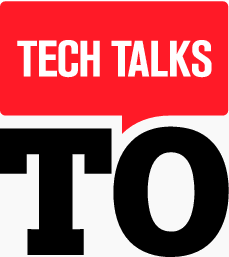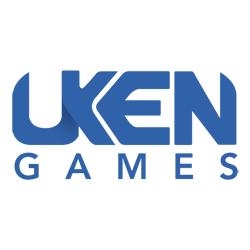Editor’s Note: This is a guest post by Bruce Dorland (LinkedIn, @brucedorland). Bruce is the Managing Director & Recruiter at Grossman Dorland Recruiting. gdR recruits for permanent and contract positions at all levels, from roles for talented young professionals to accomplished executives. Prior to founding gdR, Bruce spent time at Brightspark, Tucows shipping products that have been used by over 3MM users.

![]()
![]()
![]() Some rights reserved by Candid-Moments
Some rights reserved by Candid-Moments
Occasionally I interview a developer that really impresses me with their ability to make their profile come to life beyond their resume.
Want to know what makes these developers stand out? Here are my top ten tips for making a big impression. Many of these tips work for both a resume and, once that stellar resume gets you in the door, a job interview.
I think developers looking for a new job can have it tough. Many, if not most, job descriptions aren’t great at describing the actual nature of the role. Traditional resume formats can be flat. Interviewers don’t always ask effective questions, and HR departments that rely heavily on keyword matching can’t differentiate you qualitatively from other candidates.
The result: unless you do something different, the odds of standing out are stacked against you. But if you’re trying to get into a startup or midsize tech company that is truly looking to build a top-notch team, it’s essential that you learn to make your mark. Here’s how:
Tip #1: Show me your side projects
Small and midsize companies increasingly value a well-rounded candidate with a passion for technology and a dedication to growing their technical skillset. For confidentially reasons it can be hard to show people the code you’ve been working on at your job, but side projects are a great way to show how you design and implement code. In my opinion, side projects are also a surefire sign of your passion for the craft.
A great tool for this is a code sharing and publishing platform like GitHub. The site gives you a place to contribute to open source projects and build a public reputation for your work since the community is quite transparent. For instance, if a patch you submit is accepted, you get credit for it and it shows up in your profile. The site acts like a resume that helps the maintainer of a project determine your reputation.
Tip #2: Have a relevant and up-to-date portfolio site
While it’s common for certain types of developers to have a portfolio site, UI developers in particular, I’ve found that many create a site early on in their career but don’t keep it up to date.
Most employers who refer to your portfolio site won’t necessarily have the time or patience to fill in any blanks or realize is something is out of date. It’s up to you to make sure that your site accurately reflects where your skill level is today, that sites that aren’t live anymore are removed, that screenshots are illustrative and relevant, and that you give the context of why your work was original or important at that time.
Tip #3: Form your own opinions on technology
What are the topics of the day within your company? What technologies have they chosen to use and why? Form an opinion about your current company’s choices of tools and have an opinion about where things might be going in the future (of course, you’ll want to make sure you’re observing confidentiality requirements if you intend to share this information in an interview).
In addition, know the big discussions happening in tech today. What are the latest thoughts on Continuous Integration and Deployment options? Javascript MVC frameworks? Big data? Be knowledgeable and you’ll always be ready if asked for your thoughts on the trends shaping your field.
Tip #4: Understand the users and business behind your product
Many developers are used to only describing their products from a tech perspective out, rather than a user perspective in.
To make yourself stand out from the crowd, be able to articulate who the users of your product are and the solution it provides for them, and more generally, the business side of the product.
Go into an interview from this angle in mind and a company will be confident that you always do your work with the user in mind.
Tip #5: Whiteboard your work
Many developers aren’t used to talking about themselves, their product architecture, what they’ve accomplished, or how to best articulate the technical challenges they faced. This is why whiteboarding your work is so important.
When I say whiteboarding, I mean mapping out the architecture of your product, the modules your were responsible for and the technological challenges you faced. It’s about taking all this information and putting it into words so that you can talk about it during an interview.
This might also literally mean drawing this all out on a whiteboard, as I often ask candidates to do during an interview. You can’t lie to yourself or anyone else in front of that whiteboard – either you can map out and explain your work, or you can’t.
If you can bring sample documents to reinforce your whiteboard map without breaking confidentiality agreements, that helps too.
Tip #6: Make it interactive – demo your work!
In an interview, I’m always much more engaged if a developer can demo their product for me. This might seem obvious, but you’d be surprised how seldom I’m asked if I want a live tour of the product they’ve been working on.
If you worked for a SaaS company, for example, and you still have an account, offer to log in and show me around. Tell me which modules you were responsible for. This is always much more visual and stimulating than a written summary of your work.
Tip #7: Be articulate, simple & concise.
Once you’ve prepared your whiteboard, be prepared to articulate all this information (your skills, your current responsibilities and your product) in a simple, concise manner. Start with less detail and drill down where appropriate. If you don’t know how deep to go, just ask the interviewer if they want to know more.
Be prepared to guide some of the questioning so you know the interviewer is getting all the information that makes you an appealing candidate. An interview is an interactive process, after all.
Tip #8: Tell me what you find exciting in tech today.
Even if you haven’t been working for the sexiest company, products or applications, always be prepared to talk about what you DO admire and why.
Please do me a favour – don’t say Apple or Google (and definitely don’t say Microsoft!). Come up with unique ideas that reflect your professional opinions on what makes a product or service shine.
Tip #9: Get to know the company you’re interviewing for.
Obvious, right? But it can speak volumes if a candidate isn’t informed, which happens a lot.
Find out what technology stack the company uses and review their FAQs, support forums, training guides and blog. If they have a free trial account of their product, sign up for an account and give it a test drive. The more you know, the more enthusiastic you’ll appear and the better and more useful your own questions will be.
Tip #10: Come to the interview with great questions.
Hopefully after having done all the research I’ve suggested, you’ll have some original questions to ask that not only show that you’ve come prepared, but that will also help you make a decision about how the company, product, technology and team fit your overall career goals.

